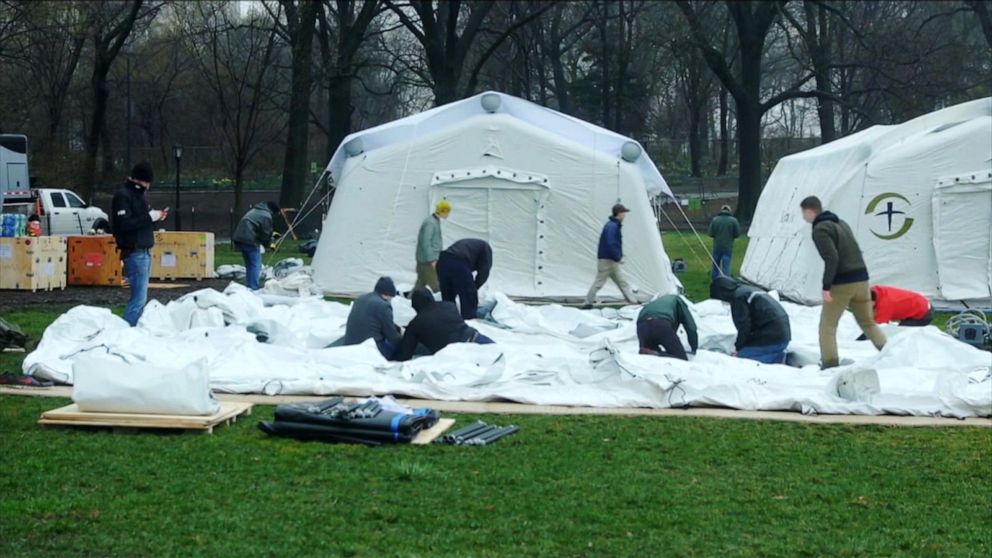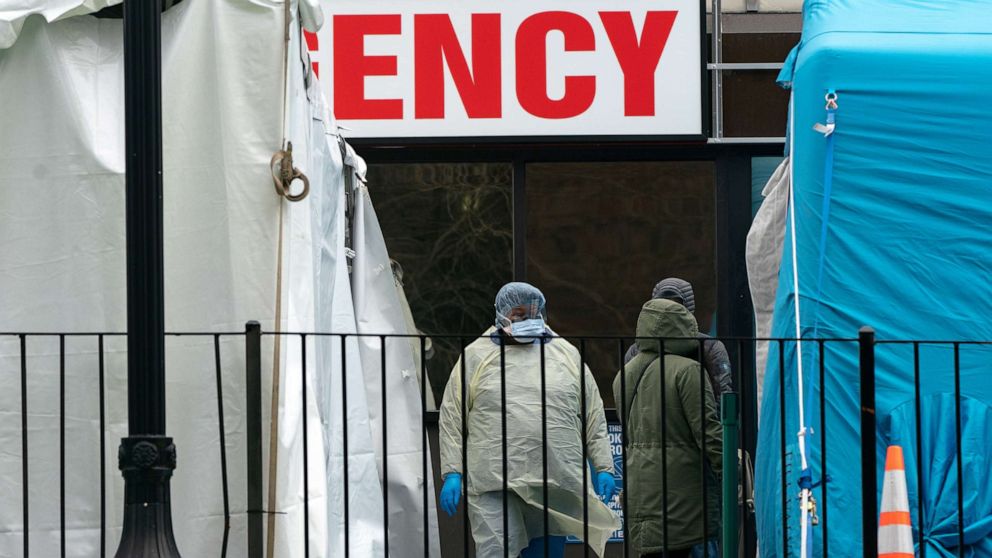White House asking hospitals to email them data on coronavirus patients
The request acknowledges how little data the government has on coronavirus cases

Vice President Mike Pence has taken the extraordinary step of asking the nation's nearly 4,700 hospitals to submit via email daily updates to a federal inbox on how many patients have been tested for novel coronavirus, as well as information on bed capacity and requirements for other supplies.
The request from Pence to hospital administrators was a stunning admission by the government that it still doesn't have a handle on the scope of the fast-moving virus and what it needs to combat it.
The letter also exposed serious limitations to the federal government's ability to communicate directly with states and health care providers, despite being several weeks into the crisis and after years of planning by both Democratic and Republican administrations on how to prepare the nation for a pandemic flu.
Tune into ABC at 1 p.m. ET and ABC News Live at 4 p.m. ET every weekday for special coverage of the novel coronavirus with the full ABC News team, including the latest news, context and analysis.
Heath experts on disease surveillance and data said they were somewhat surprised the federal government didn't already have this capability, and questioned why the administration waited to set it up now. But, they acknowledged, the U.S. health system is designed in a way in which care is managed by private doctors and hospitals, as opposed to state-run health care systems.

"There are modern approaches to get this data, no doubt," said John Brownstein, chief innovation officer at Boston Children's Hospital and professor at Harvard Medical School. "We're not doing much better than the fax."
MORE: In the middle of the coronavirus crisis, some hospitals fear financial ruin
Katherine Hempstead, a senior health policy adviser with the Robert Wood Johnson Foundation who has worked previously on health data and surveillance issues, said most health records are online already. So the inability for the federal government to access that data is probably a mix of privacy concerns and a reflection of how decentralized the health system is.
Unlike state-run health care systems in countries like South Korea and China, the U.S. leaves testing up to private doctors and hospitals, which coordinate with state-run public health departments. Each state manages that health data differently, creating disparate data sets.
"We have a really fragmented system … that isn't well calibrated to this kind of public health emergency," Hempstead said. "And I don't think it's clear whose fault it is. … It's just not set up in a way that decision-makers need."